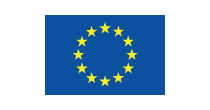Overview
World Bank has launched an International Working Group to Improve Data on Remittance Flows (the “Working Group”) under the auspices of KNOMAD and in coordination with top source and destination countries for remittances, and the IMF, UN, OECD, and Eurostat. The Working Group also leverages and coordinates with the Global Remittances Working Group (GRWG). The genesis of the group is against the call for timely and better statistics on remittances, as these flows have become an important source of external financing in low- and middle-income countries. Accurate and timely data on remittance flows are necessary to enable decision-makers to enhance evidence-based policies and support the achievement of sustainable development goals (SDG). However, based on assessments made by a wide variety of users, there are gaps in the data and concerns about its quality.
The over-arching rationale of Working Group is to facilitate the coordination and information sharing among participants engaged in remittance flows data collection; compilation of methodologies and related activities, thereby establishing an effective and efficient system for monitoring developments. This will facilitate progress towards the comprehensive measurement of remittance flows in low- and middle- income countries, in conformity with internationally agreed standards and definitions.
The Working Group will also take responsibility for assessing the extent to which countries compile remittance flows data in conformity with internationally agreed standards and definitions and, for documenting deviations from agreed norms. The group will also serve as a discussion forum for proposed initiatives to further improve statistics on remittances by proposing best practices for capturing data sources and the compilation of methodologies, assisting in strengthening of basic statistics, further improving bilateral statistics, data dissemination and publication.
Objectives of the Working Group
The Working Group will: (a) attempt to monitor progress in the implementation of the remittance data compilation guidelines in accordance with BPM6; (b) improve timeliness and granularity of the remittances data (frequency, corridors, channels, types of senders and recipients); (c) improve crosscountry and time series comparability of remittances inflows and outflows; and (d) improve international cooperation in the collection, compilation and dissemination of remittance statistics, including capacity building.
To that end the Working Group would: (a) draw on analyses of data collected through existing mechanisms, (b) strengthen the network for information flows among various institutions; and (c) maximize the benefits of information captured within the framework of the Compilation Guide on Remittances, BoP/IIP
Participants
Participation is being solicited from international organizations (such as the IMF, Eurostat, the United Nations), national statistical offices, and central banks of countries that are major sources or recipients of remittances. The list of relevant countries to be invited includes – for e.g., G-20 members, members of the Call to Action to Facilitate Remittances, and a few Small Island States and Fragile countries. The World Bank through KNOMAD provides the Secretariat.




Duties and responsibilities of the participants will include the following:
- Improvements in source data for remittance flows (data gaps to be addressed; data collected to be adequate for the compilation of these stats)
- Money Transfer Operator (MTOs)
- Banks
- Other official channels
- Unregulated
- Unregulated – in Kind
- Unregulated - in Cash
- Capturing and analyzing the high frequency remittance flows data (monthly quarterly, Big Data)
- Improvements in staffing capacity (through training, especially on developing source data on remittance flows, compilation methods, and dissemination)
- Improving data compilation methodology for remittance flows (misclassifications mentioned above; inconsistency; duplications)
- Developing models of capturing/estimating the unregulated flows of remittances
- Improving remittance flows data dissemination practices (compile longer time series; bilateral breakdown; new data by country, by gender, by type/channel; clear distinction of personal transfers; compensation of employees; and travel services).
Remittance service providers and the civil society will be briefed and consulted at various stages of the Working Group’s deliberations.
FAQs
Is the Working Group fit with other existing discussions and efforts such as the discussions within the FSB?
This activity will complement ongoing discussions on remittances in the FSB and the G-20. The Global Remittances Working Group is a co-sponsor of this initiative. The group of countries participating in the Call to Action to Keep Remittance Flowing launched last year by the UK, Switzerland and KNOMAD/World Bank) had also supported this initiative to improve data.
What is the number and the level of participants who can join the “International Working Group on Improving Data on Remittances?”
Many countries have nominated a principal and an alternate to the Working Group.
We have sent invitations to around 85 countries, the IMF and the Eurostat, requesting central banks to nominate a staff members (a principal and an alternate) with technical knowledge of balance of payments concepts and more specifically, compilation of data on remittance flows (inbound or outbound). The staff members’ level would be in terms of experience and expertise and responsibilities to perhaps a lead economist or experienced senior economist level staff of the World Bank or the IMF. In many central banks, that might imply a director or head of the division level.
Some degree of flexibility may be required, and the nominee(s) may need to involve/consult other colleagues from their organization.
What are the countries that already expressed their interest in participating in the Working Group?
As of June 6, 2022, confirmations have been received from Countries: Australia, Azerbaijan, Bangladesh, Belgium, Bosnia and Herzegovina, Brazil, Comoros, Croatia, Dominican Republic, Egypt, El Salvador, the Gambia, Georgia, Germany, Guatemala, India, Italy, Ireland, Republic of Korea, Kosovo, Kuwait, Lebanon, Mexico, Moldova, Montenegro, Myanmar, Norway, Pakistan, Peru, Philippines, Poland, Saudi Arabia, Serbia, Spain, Sri Lanka, Tajikistan, Thailand, Turkey, Uganda, Ukraine, and Zimbabwe, the IMF, EUROSTAT, European Commission, and the World Bank.
Process and Timeline
Thematic Groups
Members will be invited to join one or more of the following six thematic groups:
- High-frequency data on remittance flows (monthly and quarterly, Big Data)
- Remittance channels and instruments
- Bilateral remittance flows
- Types of senders and recipients (by type of migrants)
- Definition and data compilation guidelines (to address misclassification, improve comparability over time and across countries)
- Estimation of unregulated flows
Recognizing that these themes are not mutually exclusive, cross-cutting issues such as gender and type of migrants (for example, high-skilled and low-skilled, transit and return migrants, temporary and permanent migrants, forced and economic migrants)
Meetings
The first working meeting of experts was held virtually, in three separate 2-hour sessions, in June 2022. In these sessions the terms of reference of the thematic groups were finalized. An in-person meeting of all the thematic groups was held in May 2023 in Brussels to prepare the outline of the report. A follow-up meeting was organized in London in Nov 2023 to finalise the surveys and structure of the chapters of the report. The report will be prepared by June 2023. The drafting team will also distill recommendation for Balance of Payments and International Investment Position Manual, BPM7.
Members of the working group will be briefed on progress on a regular basis.


